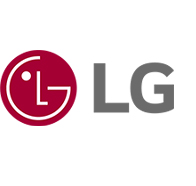-
What happens when your home appliances stop working? Do you discard, repair, or abandon them in the house? Just before you answer. Did you know that if any of your household appliances break down, there’s a special kind of financial cover that can help you repair or replace them easily? This cover is known as home appliance insurance.
However, it is essential to note that appliances with a warranty may not necessarily need insurance. Nonetheless, many homeowners are more comfortable with buying appliances that are covered by some sort of home appliance insurance. That is still an excellent approach to ensure your appliances are safe.
This post serves as a comprehensive guide on home appliance insurance; we’ll discuss everything you need to know about insuring your home appliances.
-
What is Home Appliance Insurance?
Home appliance insurance is simply another name for a home protection plan or a home appliance warranty. It safeguards against unexpected repair or replacement costs for your household appliances. These plans typically cover appliances like refrigerators, ovens, washing machines, and more, providing homeowners with peace of mind. In the event of a breakdown or malfunction, the insurance helps mitigate the financial burden, ensuring that your appliances are repaired or replaced promptly.
How does it work?
As a customer, you pay a monthly or annual fee in exchange for discounted diagnostics, repairs, and replacements of your home’s essential components, such as AC units, refrigerators, and laundry appliances.
The major advantage of getting home appliance insurance is that it can help you alleviate expenses when you need to repair or replace the appliance. This way, you don’t need to break the bank to repair any of your appliances.
-
Which Appliances Does Home Appliance Insurance Cover?
Generally, home appliance insurance will cover the cost to diagnose, repair, or replace a home appliance when it stops working due to mechanical failure or accidental damage. On the other hand, home appliance insurance commonly includes kitchen appliances such as refrigerators, ovens, dishwashers, and microwaves. You'll also find coverage for your laundry appliances like washing machines and dryers. Some plans might even extend their cover to heating and cooling systems, like air conditioners and furnaces.
Here is a list of domestic appliances that can be covered by home appliance insurance:
-
Keep in mind that you need to check the provider’s policies to know exactly what is and isn’t covered. It's crucial to read the policy details carefully, as coverage can vary between providers. It's not unusual for them to offer add-ons or customizable plans, allowing you to tailor the coverage to your specific needs.
On the flip side, there are certain legal exclusions you might find in a home appliance insurance. Some of them include:
-
- Unnecessary call-outs
- Cosmetic damage
- Manufacturing defects
- Still under warranty
- Fire, theft, or attempted theft
- Wear and tear


-
What does Home Appliance Insurance Cover?
Generally, a typical home appliance insurance should cover an engineer to fix damaged appliances as well as labor and parts costs.
In special cases where the appliance is damaged beyond repair, you should be able to replace it depending on the terms of your policy. Sometimes, the policy may cover accidental damage to the appliance.
-
Who Needs Home Appliance Insurance?
Legally speaking, there’s no obligation to get a home appliance insurance.
Whether or not you need home appliance insurance is entirely up to you. You should check if you already have a warranty in place. If you have this, you may not need to take out further insurance coverage. If not, however, then home appliance insurance can be useful.
-
How Much Does Home Appliance Insurance Cost?
Several factors can affect the amount you’ll pay for your home appliance insurance. These factors are:
1. Age: Older appliances generally cost more to insure because they are more likely to break down.
2. Value: The more valuable an item is, the more expensive it is to insure it. So, more valuable items generally cost more to insure.
3. The number of Appliances: If you add more appliances to your policy, naturally, you’ll have to pay higher insurance costs.
-
Home Appliance Insurance Versus Extended Warranty
If you’re purchasing expensive appliances worth a huge amount, you may consider extended warranties. However, extended warranties may generally be expensive and may not be worth the cost for low-value items.
There are specific cases where taking out an insurance cover is preferable to extended warranties. Let’s take a look at such scenarios:
● You want to protect lower-value appliances.
● You want to protect multiple appliances at once.
● The warranty for your appliance has expired.
● The terms of your appliance’s warranty don’t cover enough.
In the end, it is important to weigh your options considerably and decide which choice gives you better value.
-
Final thoughts
Although a warranty usually comes with a decent amount of coverage, it’s sometimes better to get insurance for your home appliances. You pay a lot of money to purchase gadgets and appliances that are not only functional but also add to the aesthetics of your home, it won’t hurt to spend a little extra cash to ensure that in case of damage, your appliances will be in good hands.
If any of your appliances suddenly stop working, you may be unable to fix or replace them immediately. This could make the problem bigger than it already is.
However, with home appliance insurance, you can get your fridge or freezer repaired immediately, so you don’t have to worry about how you’ll replace them. Home appliance insurance is like having a safety net for your household gadgets! Why not get one today?
-
Further readings:
How to cast from phone to LG TV
What to look out for when buying a soundbar
How energy-saving air-conditioner works
What is the best type of refrigerator to buy




